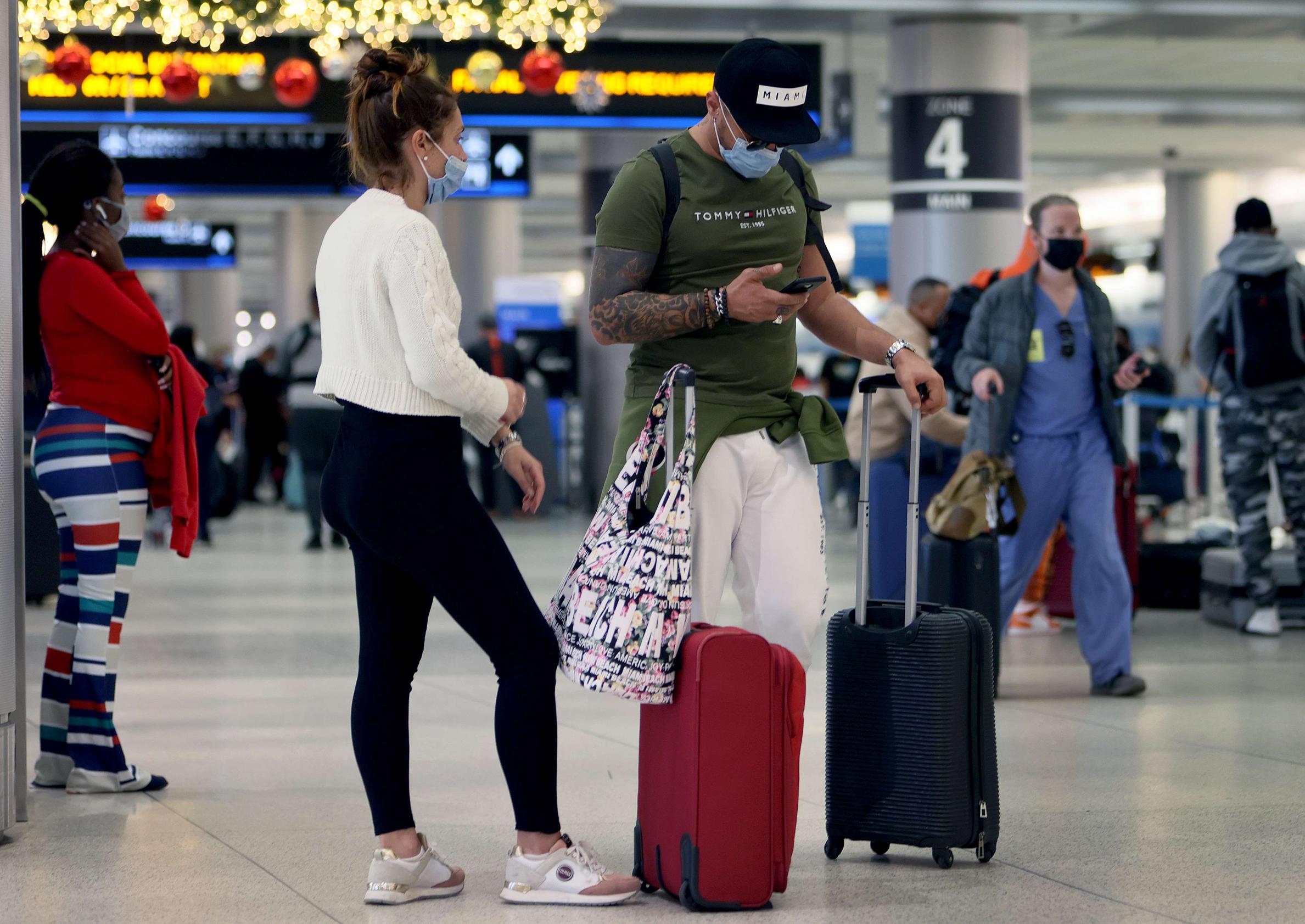A new variant of the coronavirus is worrying scientists. ‘The variant may have effects on the infectiousness and the effectiveness of the vaccines’, writes microbiologist Emmanuel André. The B.1.1.529 variant is mainly found in South Africa. The United Kingdom is preemptively canceling flights from the country.
–
A new variant of the coronavirus is worrying scientists and policymakers. The distribution of the B.1.1.529 variant is closely monitored. It was first spotted in Botswana and is now appearing more and more in South Africa. The variant could also be identified in Hong Kong. The virus had traveled from South Africa. The infections are currently mainly limited to the South African province of Gauteng, but appear to be spreading quickly.
What makes the variant special is that mutations occur in the spike proteins. That protein penetrates the human cells and attaches itself to them. The vaccines are designed in such a way that the immune system is triggered against such spike proteins. Mutations in those proteins can make it more difficult for our immune system. At least 32 mutations on the spike proteins have already been identified in the new variant, according to The Guardian.
The British government does not wait and will put six southern African countries on the ‘red list’ from Friday. From Friday afternoon, flights from South Africa, Namibia, Lesotho, Botswana, Swaziland and Zimbabwe will be canceled. Anyone who still arrives from the countries from 4 o’clock on Sunday morning must be quarantined at a hotel for 10 days. The rule is reversed if it turns out that the variant is less bad than feared. Hundreds of travelers from South Africa are now being traced to be tested for the variant. Israel also bans air traffic from South Africa.
‘Need for answers’
Belgian microbiologist Emmanuel André tweeted that the recent increase in infections in South Africa may be due to the new variant, which will probably be dubbed the ‘now variant’. ‘This variant shows 30 mutations in the spikes that are linked to infectiousness and to the mechanisms that can escape our immune system. A large number of questions need to be answered quickly (vaccine effectiveness, virulence (the power of the virus, ed.), infectivity’), writes the microbiologist. “This variant reminds us that the virus can adapt incredibly well,” he concludes.
“It is still too early to say anything about contagiousness or effectiveness against the vaccines,” South African virologist Penny Moore told the trade journal Nature. Her lab is investigating just that aspect of the virus. In two weeks they hope to have more insight into the variant’s capacity to circumvent our immune system.


